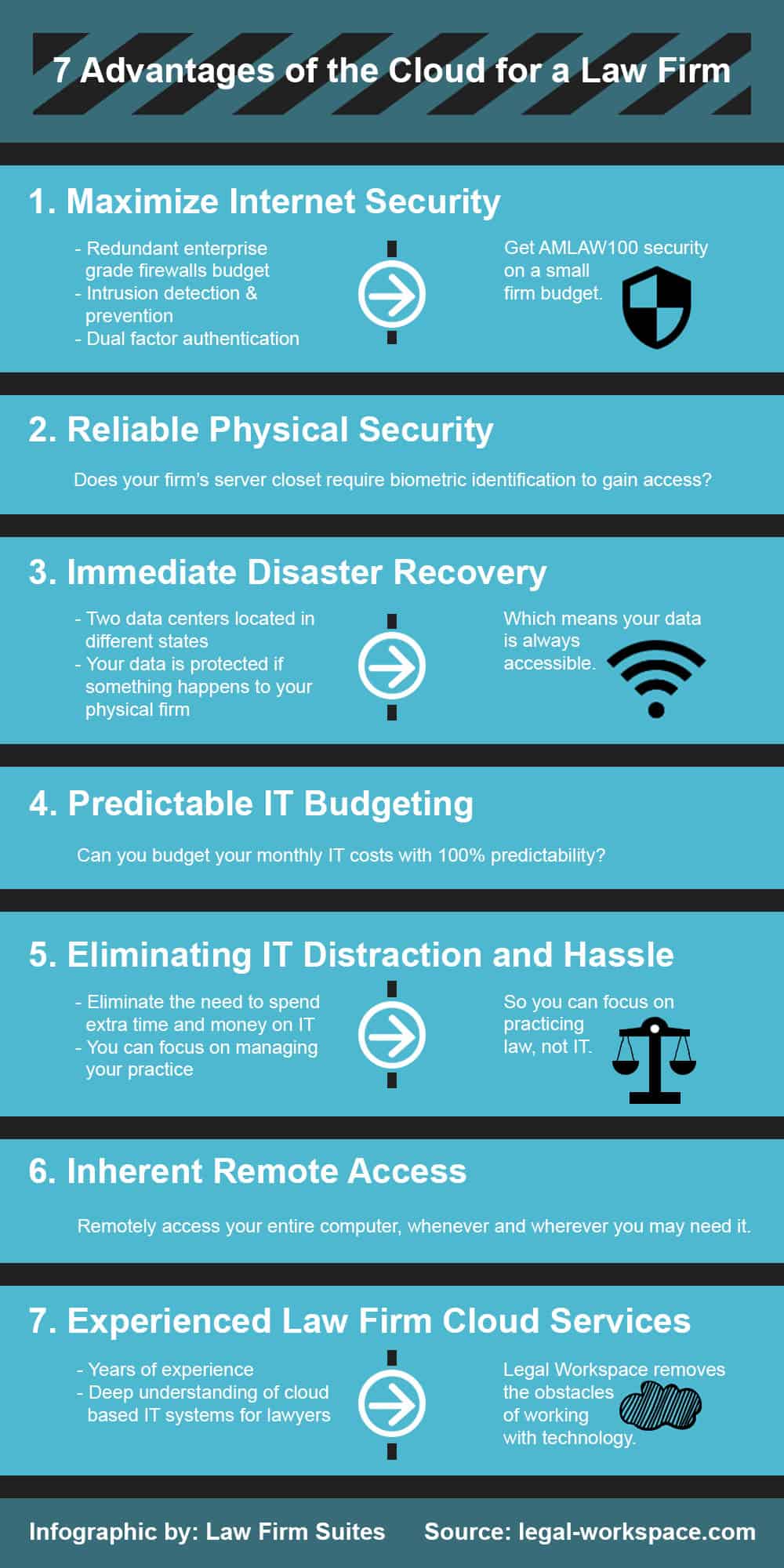Cloud environments provide a lot of advantages no matter what industry is served. But, law firms especially benefit from specific features and services that cloud hosting can supply. These four big reasons make it clear that law firms and cloud services belong together:
1) Email hosting
What would happen if your email host experienced an outage? How much would that affect your ability to work with clients? Beyond that, do you know for sure that your email encryption is strong enough?
The cloud eliminates both of those worries in one fell swoop: It makes email hosting reliable and secure. Attorneys and other employees will be able to access email anytime away from the office, and it is as safe and as dependable as it would be if they were sitting at their desks in the middle of the business day.
Cloud hosting also means that your firm is not storing files on any device, which is a key provision to the Health Care Portability and Accountability Act (HIPAA). In fact, if your law firm services clients that need HIPAA compliance, a cloud environment like Legal Workspace can make that ordinarily cumbersome process easy.
Finally, you have no need to worry about losing email data. Even if a natural disaster or a theft occurs at your law firm’s physical space, your information is safe.
2) File storage and virtual servers
All of the advantages of email hosting in the cloud apply to file storage in the cloud. Nothing is hosted on your law firm’s devices, so compliance with regulatory oversight is a snap. The storage is reliable and secure.
Cloud providers use virtual servers. That means law firm management can stop thinking about server maintenance, worrying about technology upgrades, and stressing over potential down time. When you take advantage of cloud services, you will always be using the latest and greatest technology.
It also means attorneys and employees have access to the same files, software, and other data any time and anywhere. They may be in court or mediation. They may be traveling or working odd hours. With a cloud environment like Legal Workspace, attorneys can have the exact same work experience in court that they would in their own offices, for example. It saves time, increases productivity, and makes work more convenient.
3) Back-ups
You can’t predict the future. And, no matter how well you prepare or work to mitigate risk, it is still possible that your workspace will be struck by natural disaster or burglary. Maybe you’ve thought of that and are already doing regular data back-ups…or maybe you’ve let that fall by the wayside.
When you use a cloud environment, back-ups happen automatically. Instead of natural disaster or theft causing business interruption, you have zero downtime. Legal Workspace keeps two weeks’ worth of back-ups, and they store data in two geographically diverse locations – so even if something happens that affects one of those facilities, the other has you covered.
4) Simplified routine office tasks
You can think of the cloud as your all-around IT solution because most cloud services ensure that your office technology is working, too. That means phones, networks, printers, and scanners stay up and running, and if something goes south, you know who to call.
Law firms that use a cloud environment can concentrate on what they do best: practicing law. When you make the decision to go with the cloud, email services, file storage, security, reliable back-ups, and a simplified office routine are all yours.









